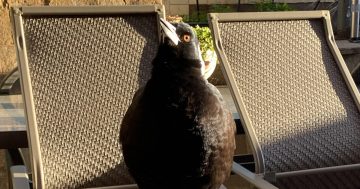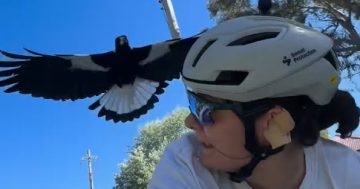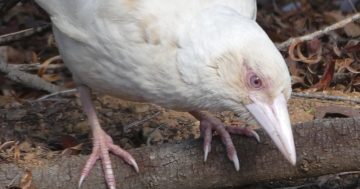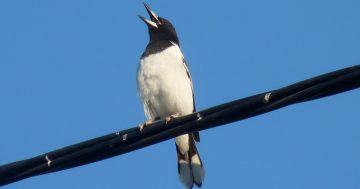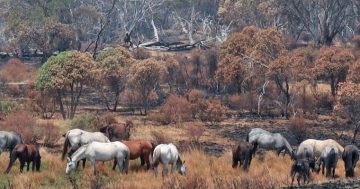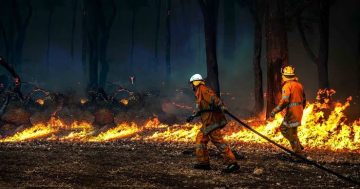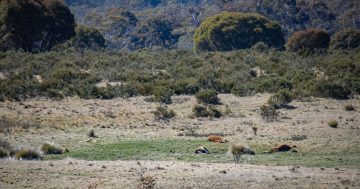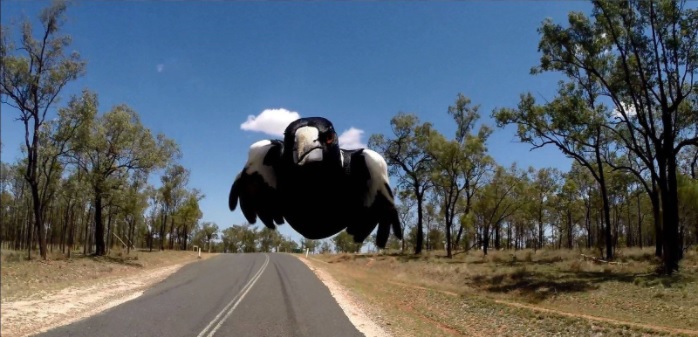
Springtime across the ACT and most of Australia heralds magpie swooping season as the birds defend their territory against intruders. Photo: Australian Museum.
It doesn’t matter where you live, be it the ACT, the South Coast, the South West Slopes or Southern Tablelands, chances are you’ll be under attack.
And before you think the current COVID-19 lockdown will save you, think bigger, because the sun is out and so are the magpies, sweet little burbling, curious creatures they are.
Just have a look at Magpie Alert! and you’ll see that Canberrans are very good at reporting attacks, and that the national capital seems to be a maggie magnet.
But some towns, such as Goulburn, are going to the trouble of posting signs warning people of potential attacks.
READ ALSO: Magpies are evil, rotten, malevolent, dead-eyed bastards. Fact check: true
For most of the year magpies are not aggressive, but for four to six weeks coming into spring and during nesting they will often vigorously defend their territory and their chicks.
It’s a little known fact that baby magpies leave the nest before their tail feathers have grown.
So with nesting season running from June to December, it stands to reason that around four weeks after the eggs hatch, around August, the little critters are ready to venture forth. Sometimes a weather event, such as strong winds, will flick them out of their nests prematurely.
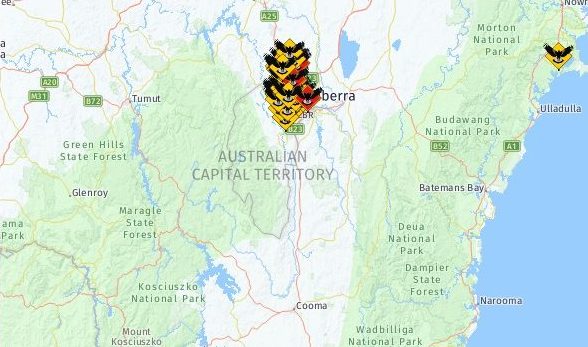
Magpie sightings throughout the ACT have been diligently reported on website Magpie Alert! Image: Magpie Alert!
Because they’re still unable to fly, the chicks live on the ground and are fed and protected by their parents during the day and are hidden in undergrowth overnight. Members of the public sometimes confuse this act of nature with magpie babies being deserted or in distress.
People walking past may be seen as ‘invaders’ of the territory and threats to the chicks, prompting the magpies to fly low and fast above the person, clacking their beaks as they pass overhead.
The experience of a magpie attack can be quite alarming, especially when there’s a slight gust of wind associated with the swoosh, but it’s usually only a warning.
Only occasionally will a bird actually strike the intruder on the head with its beak or claws.
If this unusual behaviour persists, there are ways of reducing the risk of physical injury to humans.
If a magpie swoops at you:
- Do not panic and run. It can encourage a swooping bird to continue its attack.
- Try to keep an eye on the magpie while carefully walking away.
- Magpies are less likely to swoop if you look at them.
- You can also try wearing your sunglasses on the back of your head at the time of an attack.
- Wear a bicycle or skateboard helmet (spike up with some cable ties if possible).
- Wear sunglasses and a broad-brimmed hat.
- Carry an open umbrella, a stick or a small branch above your head but do not swing it at the magpie as this will only provoke it to attack.
- If you are riding a bicycle, get off it and wheel it through the area. Your bicycle helmet will protect your head, and you can attach a tall, red safety flag to your bicycle, or hold a stick or branch as a deterrent.
- Do not act aggressively. If you wave your arms about or shout, the magpies will see you as a threat to the nest – and not just this year, but for up to five years to come.
- Children walking to school should hold a bag over their head, if possible. Ice-cream tubs have also been successfully used for the protection of little heads.
- Don’t approach a young magpie just out of the nest. The parents may think you are attempting to harm it.
Residents can track and record swooping magpies in the local area using Magpie Alert!
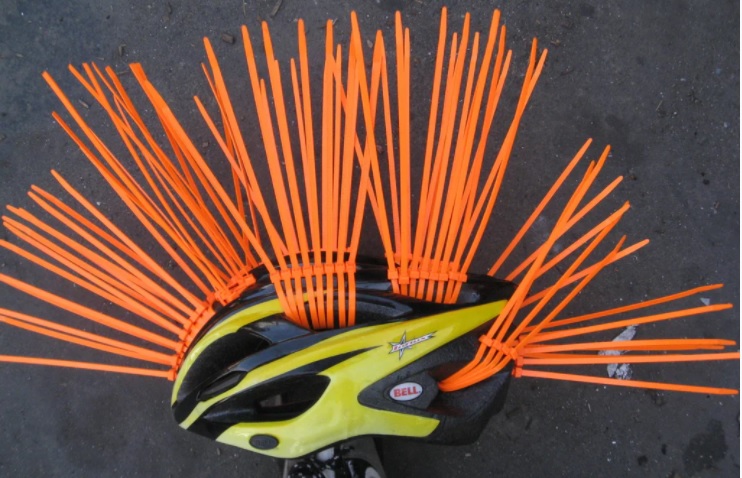
If you want to get crafty with your magpie defence, this helmet mohawk could inspire housebound residents in the south of NSW. Photo: Pinterest.
Magpies are protected throughout NSW under the National Parks and Wildlife Act 1974 so this makes it illegal to kill the birds, collect their eggs, or harm their young.
Local councils have no powers to authorise or carry out the destruction of magpies and cannot discharge a firearm in the town limits.
If you feel a magpie is a risk to public safety that cannot be adequately mitigated by these measures, you should report the matter to the nearest NSW National Parks and Wildlife Service office.
For further information on dealing with magpies during the breeding season, click here.
Original Article published by Edwina Mason on About Regional.







